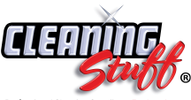How To Choose A Brush For Your Floor Scrubber Buffer
First, consider the fiber bristle choices
Bassine:
Bassine is a natural, high quality coarse bristle material for economical general scrubbing applications. Bassine, as a natural organic fiber, does have limitations when compared to synthetic fibers for durability.
Nylon:
Nylon is the most durable synthetic bristle material with excellent abrasion resistance and bristle bend recovery earning its higher initial cost. Nylon provides very good chemical resistance and is an excellent bristle choice for general scrubbing.
Polypropylene:
Polypropylene is a synthetic bristle material with more durability than natural fibers and a little more economical than Nylon; highly resistant to chemicals, fungus, and bacteria. Ideal for floor care programs that require general scrubbing, wet scrubbing, as well as stripping and re-coating operations.
Steel Wire:
Steel Wire bristles provide extremely aggressive stripping for rough concrete at an economical cost. Note: Do not use with flammable materials (fuels, solvents, thinner, etc.) as serious bodily harm or injury could result from possible fire or explosion.
Tampico:
Tampico is a natural material from the Mexican agave plant. A soft to medium durable bristle that is highly resistant to chemicals and solvents used for high luster polishing applications. Tampico is perfect for any floor care maintenance program.
Union:
Union is an economical blend of Tampico and Palmyra which is used in general floor buffing or polishing operations.
Secondly, consider the bristle stiffness:
Bristle Stiffness:
Bristle stiffness is a relationship of fiber type and size. Synthetic bristles offer the advantage of various sizes producing different stiffness levels. For instance a .018 Nylon is very thin, only 18 thousandths thick, and therefore not very stiff. But .070 Nylon is very large in diameter at 70 thousandths, and therefore very stiff. Hence, the larger the number in front of the fiber type, the stiffer, more aggressive the bristle.
Lastly, consider the grit size:
Grit:
"Grit" or Silicon Carbide Grit can be bonded to synthetic fibers to provide varying levels of scrubbing, stripping aggressiveness. A 46 Grit is a large size Grit and therefore very aggressive. 500 Grit size is very small and therefore much less aggressive, much like sandpaper measurements. Hence, the smaller the number for Grit the more aggressive the brush bristle.

Shop By Type Of Brush Below or Call Us At 1-866-497-2056 For Floor Scrubber Brush Assistance:
How To Choose A Brush For Your Floor Scrubber Buffer (CLICK HERE)
Strip: Strip Brushes are for removing all finish, sealer and contaminants from the floor surface.
Polish: Polish Brushes are designed to "polish" already waxed floors to a higher gloss.
Pad Holder: Pad Holders are designed to "drive" floor pads into contact with the floor.
Carpet Brush: Carpet Brushes are designed to "scrub" carpeted floors clean.
